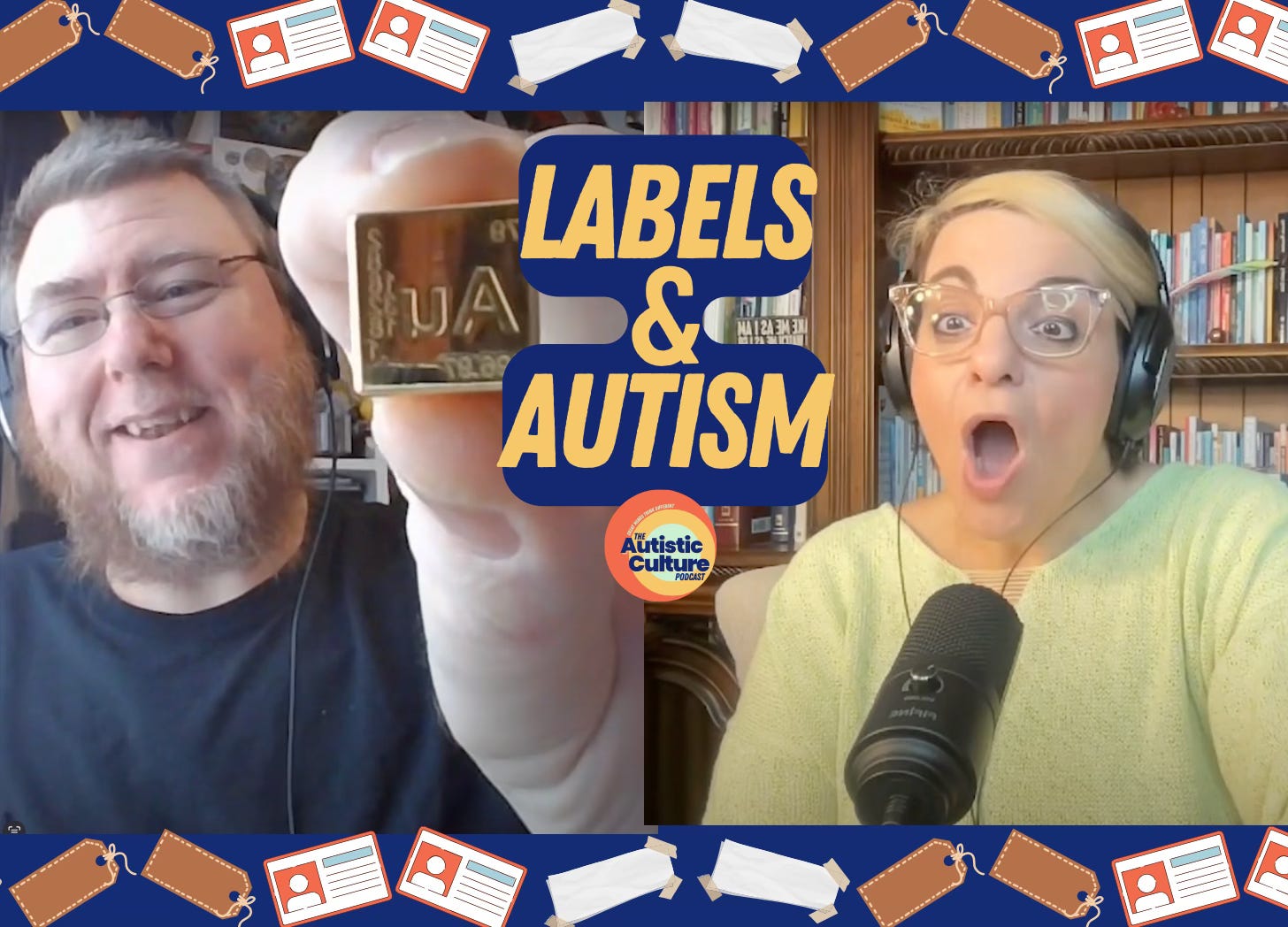
In this episode of The Autistic Culture Podcast:
Matt Lowry and Angela Lauria discuss the value of using the label "Autistic" and whether labels are helpful or harmful.
“When we're not allowed to have a label, when we're not allowed to have a cultural identity, people still label us but give us really bad labels.” –Matt
The podcast hosts explain the difference between medical model labels like “has autism” and “autism spectrum disorder” (ASD), and identity-affirming labels chosen by Autistics, like “is/am Autistic.” ASD implies deficits and the need for a "cure." Referring to Autistic individuals as disordered helps prop up the ABA for autism industry that traumatizes Autistic children. Claiming the label, “Autistic” affirms natural neurological variation.
Similarly, the term neurodiversity describes human neurological diversity overall. Neurodivergent refers specifically to non-typical neurological types like Autistic people. Functioning labels like high/low functioning are rejected for perpetuating stereotypes—all Autistics have variable abilities.
Labels correctly linking autism to being disabled (social model of disability) can be strategic to secure legal accommodations and services in a non-inclusive society. Autism rights pioneer, Jim Sinclair, introduced the idea of neurodiversity and the need for autism acceptance in the 1980s. The hosts emphasize listening to Autistic people about the labels they prefer, not imposing labels.
“But listen, I think neurotypicals don't hear a difference…They don't hear a distinction between ASD, which is a label assigned to us by neurotypicals, by the diagnostic criteria that the Board of Psychiatry has decided for us, versus me saying…I'm Autistic.” –Angela
They explore the ways in which labels can be used to identify and connect Autistic people to the culture, but also how they can be used to stigmatize and stereotype. Accurate representation in media combats damaging stereotypes. Autistics want diverse stories showing their humanity.
The hosts also compare and contrast Deaf Culture and Autistic Culture, delving into the concept of Autistic Culture and how it can be a source of pride and support for Autistics.
They discuss the intersection of autism and mental health, and how self-acceptance and self-advocacy can be important tools in promoting positive mental health and well-being. Overall, they conclude chosen labels that celebrate difference are helpful while imposed labels often do harm—the goal is Autistic justice.
What’s your experience with labels as an Autistic person? Tell us about it in the comments!
Autism Representation in the Media
Carl Gustav Arvid Olof Croneberg’s NY Times Obituary
Autism Rights Activist Jim Sinclair
Spirit Airlines kicks 4-year-old boy with autism off flight for not wearing mask
Want some basics on Autistic Culture? Listen to Episode 01: Welcome to Autistica
Or try: Episode 36: Bad Autism Diagnosis and Episode 14: Autistic Medical Needs
Check us out on Instagram
Find us on Apple podcasts and Spotify
Learn more about Matt at Matt Lowry, LPP
Matt’s social media: Autistic Connections Facebook Group
Learn more about Angela at AngelaLauria.com and Difference Press
Angela’s social media: Twitter and TikTok
TACP’s Autism-affirming TeePublic merch shop
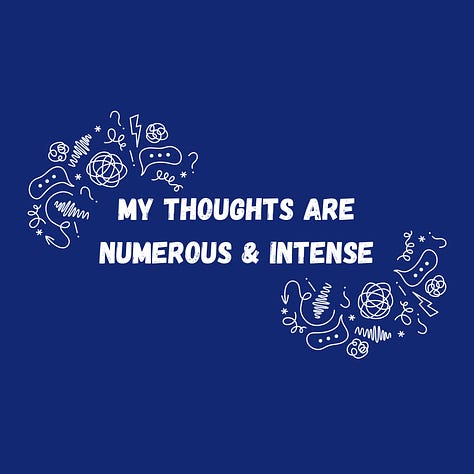

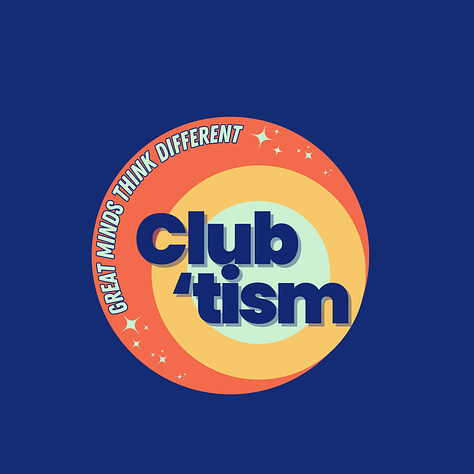



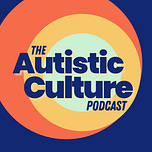





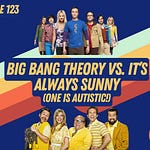


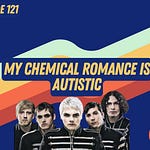

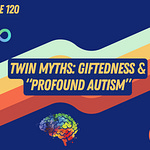
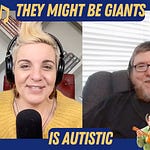
Share this post